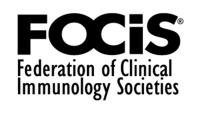Remi J. Creusot, PhD
- Associate Professor of Medical Sciences (in Medicine)

Overview
Dr. Remi Creusot is an associate professor in the Department of Medicine and principal investigator at the Columbia Center for Translational Immunology and the Naomi Berrie Diabetes Center. Dr. Creusot obtained his BS degree in Biochemistry and MS degree in Microbiology from the University of Nancy (France), and received his PhD in Immunology from the University of London at University College London (UK). He subsequently trained at Stanford University, where he was consecutively postdoctoral fellow, research associate and instructor in the Department of Medicine, Division of Immunology and Rheumatology.
Dr. Creusot joined Columbia University in November 2012 and his research interests revolve around the pathogenesis and prevention of Type 1 Diabetes. He and his group study how several processes that contribute to the maintenance of immune tolerance are impaired, allowing the progression of the disease. The lab works on several new therapeutic strategies aimed at restoring immune tolerance and blocking autoimmunity. This research allies basic research, preclinical studies using mouse models and translational studies using patient samples.
Academic Appointments
- Associate Professor of Medical Sciences (in Medicine)
Administrative Titles
- Principal Investigator, Columbia Center for Translational Immunology
- Director, CCTI and Herbert Irving Comprehensive Cancer Center Flow Cytometry Core
- Principal Investigator, Naomi Berrie Diabetes Center
- Director, Diabetes Research Center Flow Cytometry and Cell Sorting Core
Languages
- French
Credentials & Experience
Education & Training
- BS, 1996 Biochemistry, University of Nancy (France)
- MS, 1998 Microbiology, University of Nancy (France)
- PhD, 2002 Immunology, University College London
- Fellowship: 2007 Stanford University
Committees, Societies, Councils
- 2009 - Present: Immunology of Diabetes Society
- 2015 - Present: Federation of Clinical Immunology Societies
- 2016 - Present: American Society of Gene and Cell Therapy
Honors & Awards
- 2013: JDRF Transition Award
- 2010: JDRF Advanced Postdoctoral Fellowship (up to 3 years funding)
- 2005: JDRF Postdoctoral Fellowship (2 years funding)
- 2001 - 2002: Glaxo SmithKline Scholarship (1 year funding)
- 1998: Leonardo da Vinci Award (EU program for mobility in research, 6 months funding)
Research
After joining Columbia University, Dr. Creusot expanded his interests to translational research using human samples and humanized mice to investigate aspects of immune tolerance (or lack thereof) in T1D. The ultimate goal of his research is to firmly reestablish immune tolerance in individuals with T1D, meaning that immune cells would be re-educated to stop attacking insulin-producing beta-cells, or any islet transplant if applicable.
Research Projects
Epitope-based immunotherapy of T1D
We evaluate several platforms to deliver customized epitopes in an effort to rebuild immune tolerance to beta-cell antigens. Our platforms include:
- Tolerogenic DNA vaccines;
- Formulated RNA-based delivery of epitopes and immunomodulators;
- Soluble antigen arrays (in partnership with Orion Bioscience and the University of Kansas).
Tolerogenic antigen-presenting cells in T1D:
We characterize antigen-presenting cell populations in relevant tissues such as pancreas-draining lymph nodes from T1D-prone mice and T1D patients to identify possible functional defects and targets for immunotherapy. These populations include poorly studied lymph node stromal cells which the lab intends to leverage in its efforts to reestablish tolerance.
Development of human diabetogenic T cells
The lab is using state-of-the-art humanized mouse models to study the development of human T cells that recognize beta-cell antigens in an effort to understand why they are not properly purged or regulated in order to prevent autoreactivity against beta-cells.
Research Interests
- Autoimmunity
- Dendritic cells
- Humanized mice
- Immune tolerance
- Stromal cells
- Type 1 diabetes
Grants
- 11/15/18 – 10/31/23 NIH/NIAID, R01 AI142428 (PI: Creusot)
Role: PI (25%) In vivo development and reactivity of human autoreactive T cells - 12/01/19 – 11/30/23 NIH/NIDDK, U01 DK123559 (PIs: Sykes, Anderson, Hebrok, Parent)
Role: Co-I (5%) Modeling autoimmune pathogenesis and beta cell destruction by T1D immune systems - 12/01/20 – 11/30/24 NIH/NIDDK, R01 DK127778 (MPI: Suh, Rosenfeld, Egli, Yu)
Role: Co-I (10%) Enhancer-based Immune and Beta Cell Dysregulation Underlying T1D Risk - 08/01/22 – 07/31/24 NIH, R56 DK131087-01A1 (MPI: Tomei, Creusot)
Role: Co-I (5%) Unraveling the tolerogenic potential of lymph node fibroblastic reticular networks in autoimmune diabetes - 07/01/21 – 06/30/23 Beatson Foundation, 2021-012 (PI: Creusot)
Role: PI (10%) A novel mRNA vaccine for Type 1 diabetes - 08/01/22 – 07/31/24 JDRF, 2-SRA-2022-1220-S-B (MPI: Creusot, Sykes)
Role: MPI (10%) In vivo analysis of human islet graft infiltration and its immunomodulation by antigen-specific therapy - 07/01/22 – 06/30/27 NIH/NIDDK, R01 DK133701 (PI: Zhou)
Role: Co-I (5%) Engineering islet-like organoids from gastric stem cells for T1D cell replacement therapy - 08/01/22 – 07/31/24 JDRF, 2-SRA-2022-1220-S-B (MPI: Creusot, Sykes)
Role: MPI (10%) In vivo analysis of human islet graft infiltration and its immunomodulation by antigen-specific therapy
Selected Publications
- Firdessa Fite R, Bechi Genzano C, Mallone R, Creusot RJ. Epitope-based approaches for precision immunotherapy of Type 1 diabetes. Human Vaccines & Immunotherapeutics 2023; Jan 19:2154098 (Epub 01/19/2023). PMC9980607
- Postigo-Fernandez J, Firdessa-Fite R, Creusot RJ. Preclinical evaluation of a precision medicine approach to DNA vaccination in Type 1 diabetes. Proc Natl Acad Sci U S A. 2022; 119(15):e2110987119 (Epub 04/06/22). PMC9169641
- Khosravi-Maharlooei M, Madley R, Borsotti C, Sharp R, Ferreira LMR, Brehm M, Greiner DL, Parent A, Anderson M, Sykes M, Creusot RJ. Modeling T1D-associated autoimmune processes in humans. Molecular Metabolism 2021; 56:101417 (Epub 12/10/2021). PMC8739876
- Firdessa-Fite R, Johnson SN, Leon MA, Khosravi-Maharlooei M, Baker RL, Sestak JO, Berkland C, Creusot RJ. Soluble Antigen Arrays efficiently deliver peptides and arrest spontaneous autoimmune diabetes. Diabetes. 2021; 70(6):1334-1346. (Epub 01/19/21). PMC8275897
- Firdessa-Fite R, Postigo-Fernandez J, Toussaint-Moreau V, Stock F, Nyamay’antu A, Erbacher P, Creusot RJ. Promising non-viral vector for efficient and versatile delivery of mRNA for antigen-specific immunotherapy. Cell and Gene Therapy Insights. 2020; 6(9): 1399-1409 (Epub 10/29/2020).
- Donocoff RS, Teteloshvili N, Chung H, Shoulson R, Creusot RJ. Optimization of tamoxifen-induced Cre activity and its effect on immune cell populations. Scientific Reports. 2020; 10(1):15244. PMC7499195
- Gonzalez Badillo F, Zisi Tegou F, Wright S, Scully M, Harwell L, Postigo-Fernandez J, Creusot RJ, Tomei A. Tissue-engineered stromal reticula to study lymph node fibroblastic reticular cells in Type I diabetes. Cellular and Molecular Bioengineering 2020; 13(5): 419-434. PMC7596159
- Firdessa-Fite R, Creusot RJ. Nanoparticles versus dendritic cells as vehicles to deliver mRNA encoding multiple epitopes for immunotherapy. Molecular Therapy Methods and Clinical Development 2019; 16:50-62 (Epub 11/11/2019). PMC6909218
- Postigo-Fernandez J, Farber DL, Creusot RJ. Phenotypic alterations in pancreatic lymph node stromal cells from human donors with type 1 diabetes and NOD mice. Diabetologia 2019; 62(11): 2040-2051 (Epub 09/05/2019). PMC6812633
- Leon MA, Firdessa-Fite R, Ruffalo JK, Sestak JO, Creusot RJ, Berkland C. Soluble Antigen Arrays as a multivalent display of mimotopes recognized by diabetogenic T cells for the treatment of Type 1 diabetes. ACS Chemical Biology 2019; 14(7): 1436-1448 (Epub 07/01/2019). PMC7402076
- Li Y, Teteloshvili N, Tan S, Rao S, Han A, Yang YG, Creusot RJ. Humanized mice reveal new insights into the thymic selection of human autoreactive CD8+ T cells. Front. Immunol. 2019; 10:63 (Epub 02/04/2019).
- Postigo-Fernandez J, Creusot RJ. A multi-epitope DNA vaccine enables a broad engagement of diabetogenic T cells for tolerance in Type 1 diabetes. J. Autoimmun. 2018; 98:13-23 (Epub 11/17/18).
- Creusot RJ, Postigo-Fernandez J, Teteloshvili N. Altered function of antigen-presenting cells in Type 1 diabetes: a challenge for antigen-specific immunotherapy? Diabetes 2018; 67(8):1481-1494.
- Dastagir SR, Postigo-Fernandez J, Xu C, Stoeckle JH, Firdessa-Fite R, Creusot RJ. Efficient presentation of multiple endogenous epitopes to both CD4+ and CD8+ diabetogenic T cells for tolerance. Mol. Ther. Methods Clin. Dev. 2016; 4: 27-38.
- Johannesson B, Sui L, Freytes D, Creusot RJ, Egli D (2015) Towards beta cell replacement for diabetes. EMBO J. 34(7):841-855.
- Yip L, Fuhlbrigge R, Taylor C, Creusot RJ, Matsumura T, Whiting C, Schartner JM, Akter R, Von Herrath M, Fathman CG (2015) Inflammation and hyperglycemia mediate Deaf1 splicing in the pancreatic lymph nodes via distinct pathways during Type 1 diabetes. Diabetes. 64(2): 604-617.
- Creusot RJ, Giannoukakis, N, Trucco M, Clare-Salzler MJ, Fathman CG (2014) It's time to bring dendritic cell therapy to Type 1 Diabetes. Diabetes 63(1): 20-30.
- Yip L, Creusot RJ, Pager CT, Sarnow P, Fathman CG (2013) Reduced DEAF1 function during Type 1 diabetes inhibits translation in lymph node stromal cells by suppressing Eif4g3. J. Mol. Cell. Biol. 5(2): 99-110.
- Junttila IS*, Creusot RJ*, Moraga I*, Bates DL*, Wong MT, Alonso MN, Suhoski MM, Lupardus P, Meier-Schellersheim M, Engleman EG, Utz PJ, Fathman CG, Paul WE, Garcia KC (2012) Redirecting cell-type specific cytokine responses with engineered interleukin-4 superkines. Nature Chem. Biol. 8(12): 990-998. (*Contributed equally)
- Creusot RJ, Chang P, Healey DG, Tcherepanova IY, Nicolette CA, Fathman CG (2010). A short pulse of IL-4 delivered by DCs electroporated with modified mRNA can both prevent and treat autoimmune diabetes in NOD mice. Mol. Ther. 18(12): 2112-2120.
- Yip L, Su L, Sheng D, Chang P, Atkinson M, Czesak M, Albert PR, Collier A, Turley SJ, Fathman CG, Creusot RJ (2009) Deaf1 isoforms control peripheral tissue antigen expression in the pancreatic lymph nodes during type 1 diabetes. Nature Immunol. 10(9): 1026-1033.
- Creusot RJ, Yaghoubi SS, Chang P, Chia J, Contag CH, Gambhir SS, Fathman CG (2009) Lymphoid tissue specific homing of bone marrow-derived dendritic cells. Blood. 113(26):6638-6647.
- Kodama K, Butte AJ, Creusot RJ, Su L, Sheng D, Dang D, Hartnett M, Iwai H, Holness C, Soares LR, Fathman CG (2008) Time-dependent and tissue-specific changes in gene expression during disease induction and progression in NOD mice. Clin. Immunol. 129(2):195-201.
- Creusot RJ, Mitchison NA (2004) How dendritic cells control cross-regulation between lymphocytes. Trends Immunol. 26(3): 126-131.
- Creusot RJ, Thomsen LL, Tite JP, Chain BM (2003) Local cooperation dominates over competition between CD4+ T cells of different antigen/MHC specificity. J. Immunol. 171(1): 240-246.
- Creusot RJ, Biswas JS, Thomsen LL, Tite JP, Mitchison NA, Chain BM (2003) Instruction of naive CD4+ T cells by polarized CD4+ T cells within dendritic cell clusters. Eur. J. Immunol. 33(6): 1686-1696.
For a complete list of publications, please visit PubMed.gov
